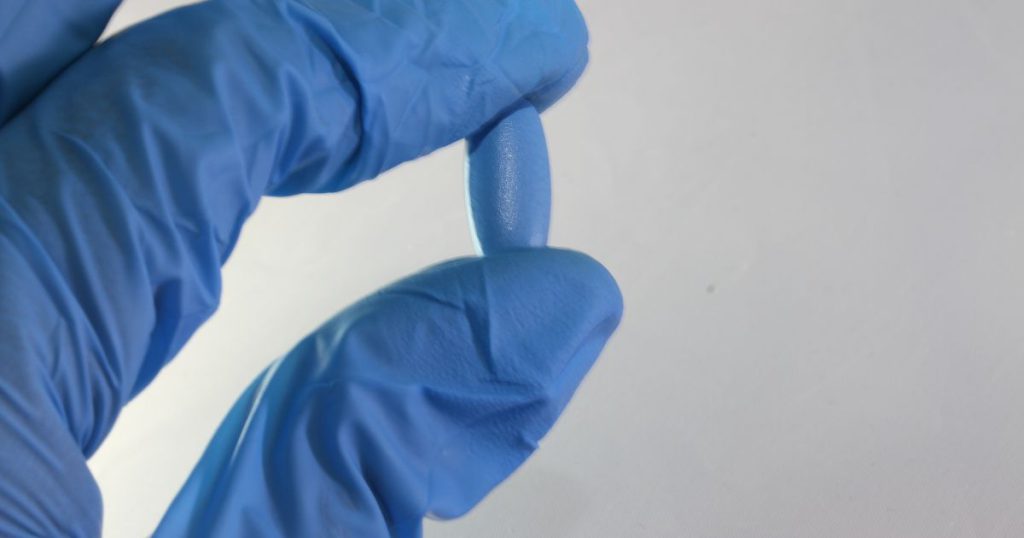Forensic Toxicology: Unraveling the Cause of Death
Table of Contents
Ever wondered how detectives solve those intricate crime mysteries? The answer often lies in forensic toxicology, the science that unravels the cause of death. Dive in to discover how this fascinating field deciphers clues from our very own bodies!
Introduction
“Forensic Toxicology: Unraveling the Cause of Death” is a captivating subject that delves into the intricate world of forensic medicine. It’s a field that combines science, medicine, and law to investigate the cause and manner of death. The role of DNA analysis in this process is crucial, as it provides a unique identifier that can link a suspect to a crime scene or exonerate an innocent person.
Forensic toxicology is like a complex puzzle, where each piece is a substance detected in the body. The challenge lies not just in finding the pieces, but in understanding how they fit together to create a picture of what happened.
What is the Study of Forensic Medicine?
Forensic medicine, also known as medical jurisprudence, is a branch of medicine that applies medical knowledge to legal issues. It involves the application of medical expertise to aid in the investigation of crime, particularly those where injuries or death has occurred. Forensic medicine encompasses several sub-disciplines, including forensic pathology, forensic toxicology, and forensic DNA analysis.
The Role of DNA Analysis in Forensic Medicine
DNA analysis plays a pivotal role in forensic medicine. It can provide definitive evidence linking a suspect to a crime scene or victim, or it can exonerate someone wrongly accused. DNA evidence can also identify victims of mass disasters or human rights abuses, and it can help solve cold cases where other types of evidence are no longer available or reliable.
In the realm of forensic medicine, DNA analysis is like the detective of the microscopic world. It uncovers the invisible clues left behind at crime scenes and provides a level of certainty that few other forms of evidence can match. It’s not just about identifying who was at the scene of a crime, but also about understanding the how and the why. DNA can reveal details about the nature of the crime, such as the type of weapon used, the sequence of events, and even the perpetrator’s state of mind.
But it’s not just about solving crimes. DNA analysis also plays a crucial role in identifying victims of disasters, whether they’re natural or man-made. In the aftermath of a plane crash or a terrorist attack, for instance, DNA analysis can help identify the victims and provide closure for their families. It’s a grim task, but an essential one, and it underscores the profound impact that this branch of forensic medicine has on people’s lives.

Forensic Toxicology: Unraveling the Cause of Death
Forensic toxicology is a specialized area of forensic medicine that focuses on the investigation of death, poisoning, and drug use. It involves the detection and identification of drugs and toxins in the human body and interpreting these findings to determine their role in a person’s death. Forensic toxicologists work closely with forensic pathologists, who perform autopsies to determine the cause and manner of death.
Forensic toxicologists employ a variety of analytical techniques to detect and quantify substances in biological samples. These techniques include immunoassays for initial screening and more specific methods like gas chromatography and mass spectrometry for confirmation. The results of these tests can provide crucial information about a person’s recent substance use or exposure.
But the work of a forensic toxicologist doesn’t stop at the lab bench. They also have to interpret the results in the context of the case. This might involve considering factors like the individual’s tolerance to a particular drug, potential interactions between different substances, and the postmortem redistribution of drugs within the body. It’s a complex task that requires a deep understanding of both pharmacology and toxicology.
Common Poisons and Their Symptoms
| Poison | Symptoms |
|---|---|
| Cyanide | Dizziness, nausea, rapid heart rate |
| Arsenic | Abdominal pain, diarrhea, heart disease |
| Mercury | Mood swings, muscle weakness, memory loss |
| Lead | Abdominal pain, constipation, fatigue |
The Importance of Toxicological Studies
Toxicological studies are crucial in forensic investigations. They can provide evidence of substance use or poisoning, which can be critical in determining the cause and manner of death. For instance, toxicological data can reveal whether a person was under the influence of alcohol or drugs at the time of death, or whether they were poisoned intentionally or accidentally.
Toxicological studies are not just about identifying the presence of substances; they also provide valuable information about the quantity and concentration of these substances in the body. This quantitative data can help forensic toxicologists understand the potential effects of the substance on the individual. For example, a high concentration of alcohol in the blood could suggest impairment, while a lethal dose of a drug could indicate an overdose.
Moreover, toxicological studies can also shed light on a person’s history of substance use. Chronic drug users, for instance, may have certain telltale signs in their toxicology reports, such as the presence of drug metabolites. This information can be invaluable in piecing together the circumstances leading up to a person’s death, providing a more complete picture for investigators and medical examiners.
The Role of the Forensic Toxicologist
A forensic toxicologist plays a vital role in death investigations. They analyze biological samples, such as blood, urine, and tissues, for the presence of drugs and toxins. They also interpret these findings in the context of the case, considering factors such as the individual’s medical history, the circumstances of their death, and the results of the autopsy.
Being a forensic toxicologist requires a specialized skill set and expertise. These professionals have in-depth knowledge of pharmacology, biochemistry, and analytical techniques. They are trained to handle and analyze various biological samples, ensuring accurate and reliable results. With their understanding of drug metabolism and toxicology, forensic toxicologists can identify substances present in the body and assess their potential effects.
In addition to their scientific knowledge, forensic toxicologists must also possess strong attention to detail and critical thinking skills. They meticulously follow protocols and procedures to maintain the integrity of samples and ensure accurate analysis. Their ability to interpret complex data and draw meaningful conclusions is crucial in determining the role of drugs or toxins in a person’s death.
Forensic toxicologists work closely with other forensic specialists, such as pathologists, crime scene investigators, and forensic scientists, to gather comprehensive evidence and provide expert opinions. Their findings and interpretations contribute significantly to death investigations and legal proceedings. By identifying the presence of drugs or toxins and determining their concentrations, forensic toxicologists assist in determining the cause and manner of death, providing crucial information for law enforcement, medical professionals, and legal authorities.
Steps in a Forensic Toxicology Investigation
- Collection of samples (blood, urine, hair, etc.)
- Preservation of samples to prevent degradation
- Analysis of samples using techniques like gas chromatography-mass spectrometry (GC-MS)
- Interpretation of results to determine the presence and concentration of drugs or poisons
- Preparation of a report detailing the findings
Challenges in Forensic Toxicology
Despite its importance, forensic toxicology faces several challenges. These include the need for rapid and accurate testing methods, the wide variety of substances that can cause death, and the interpretation of toxicological findings in the context of the case. Additionally, the presence of a drug or toxin in the body does not necessarily mean it caused the person’s death, making the interpretation of toxicological data complex.
- Detecting substances that are present in very low concentrations
Forensic toxicologists often encounter the challenge of detecting substances that are present in very low concentrations in the body. This can be particularly difficult when dealing with drugs or toxins that rapidly metabolize or are quickly eliminated from the body. Sophisticated analytical techniques and sensitive equipment are required to accurately detect and quantify these trace amounts. The development and validation of highly sensitive testing methods are crucial in overcoming this challenge.
- Differentiating between therapeutic use of a drug and abuse
One of the challenges in forensic toxicology is distinguishing between the therapeutic use of a drug and its abuse. Some substances, such as prescription medications, can be both medically beneficial and potentially harmful when misused. Toxicologists must carefully analyze the concentration of the drug in the body and consider factors such as prescribed dosage, medical history, and the presence of other substances. This differentiation is crucial in determining the role of the drug in a specific case and establishing its contribution to the cause of death.
- Determining the time of drug intake
Another challenge in forensic toxicology is determining the time of drug intake. This information is vital in understanding the sequence of events leading to an individual’s death and establishing the relationship between the drug and the cause of death. However, determining the exact time of drug ingestion can be challenging, especially if there are delays in the discovery of the body or the collection of samples. Toxicologists rely on various factors, such as drug concentration changes over time, pharmacokinetic data, and postmortem changes, to estimate the time of drug intake as accurately as possible.
- Interpreting the effect of a drug on an individual, as this can vary greatly between people
Interpreting the effect of a drug on an individual presents a significant challenge in forensic toxicology. The response to a drug can vary greatly between individuals due to factors such as age, weight, metabolism, tolerance, and underlying health conditions. Toxicologists must consider these individual variations when analyzing toxicological findings and determining the contribution of a drug to the cause of death. Comprehensive knowledge of pharmacology and extensive experience in interpreting toxicological data are crucial in accurately assessing the impact of a drug on an individual.
The Impact of 21st Century Advancements on Forensic Toxicology
The 21st century has brought significant advancements in forensic toxicology. New technologies and techniques have improved the detection and identification of drugs and toxins, making it possible to analyze even tiny samples with high accuracy. These advancements have also enabled the detection of new substances, such as novel psychoactive substances (NPS), which pose new challenges for forensic toxicologists.
Forensic toxicology plays a crucial role in the investigation of crimes and the administration of justice. With the advancements of the 21st century, the field has been revolutionized, allowing forensic toxicologists to delve deeper into the analysis of drugs and toxins. The introduction of innovative technologies and techniques has enhanced the accuracy and sensitivity of tests, enabling the detection of even minuscule traces of substances in various biological samples.
One of the notable advancements is the development of highly sensitive analytical instruments, such as gas chromatography-mass spectrometry (GC-MS) and liquid chromatography-tandem mass spectrometry (LC-MS/MS). These instruments have significantly improved the identification and quantification of drugs and toxins in forensic samples. The precision and reliability of these methods have greatly assisted forensic toxicologists in providing crucial evidence for legal proceedings.
Moreover, the emergence of novel psychoactive substances (NPS) has presented new challenges in forensic toxicology. NPS are synthetic drugs designed to mimic the effects of controlled substances but with slightly modified chemical structures, making their detection more complex. The continuous monitoring and adaptation of analytical methods are necessary to keep up with the ever-evolving landscape of these substances and ensure accurate identification and interpretation of results.
The Role of the Medical Examiner’s Office
In the realm of death investigations, the medical examiner’s office stands as a beacon of truth and justice. This pivotal institution takes on the responsibility of unraveling the mysteries surrounding a person’s passing. By conducting autopsies, meticulously collecting and analyzing evidence, and determining the cause and manner of death, the medical examiner’s office plays a critical role in bringing closure to grieving families and seeking justice for the departed.
At the heart of the medical examiner’s office, forensic toxicologists tirelessly contribute their expertise to the investigation process. Collaborating closely with medical examiners, these skilled professionals specialize in analyzing toxic substances within the body. Through their meticulous examination and interpretation of toxicological data, forensic toxicologists provide invaluable insights into the circumstances surrounding a person’s demise. Their findings shed light on the presence of illicit drugs, medications, or other toxic elements that could have played a role in the individual’s demise, ultimately aiding in the pursuit of truth and justice.
In summary, the medical examiner’s office, with the invaluable support of forensic toxicologists, serves as a pillar of the justice system. Through their unwavering commitment to meticulous examination and scientific analysis, they unearth the truth, unravel the mysteries, and bring solace to those affected by the loss of a loved one. Their dedication and expertise shine a light on the cause and manner of death, ensuring that no stone is left unturned in the pursuit of justice and closure.
Conclusion
The world of forensic toxicology is as fascinating as it is crucial in our modern society. It’s a field that requires constant learning and adaptation to new technologies and methodologies. If you’re intrigued by the intersection of science, medicine, and law, consider delving deeper into this field. Visit my Forensic Medicine category for more resources and information. Also, don’t forget to check out my previous post on The Impact of Technology on Forensic Medicine to further understand the technological advancements shaping this field. Your journey into the captivating world of forensic toxicology starts here.
In the realm of forensic toxicology, the smallest trace of a substance can be the most significant piece of evidence. It can be the difference between innocence and guilt, life and death.
Dr. John Trestrail, Forensic Toxicologist
Frequently Asked Questions
What is the role of DNA analysis in forensic medicine?
DNA analysis plays a crucial role in forensic medicine. It is used to identify individuals involved in a crime, determine familial relationships, and even generate a physical profile of a person. It is also used to solve ‘cold cases’ and exonerate the innocent.
How does DNA analysis work in forensic medicine?
DNA analysis in forensic medicine involves examining short tandem repeats (STRs) in an individual’s DNA to create a unique genetic ‘fingerprint’. Advanced tools like next-generation sequencing technologies can analyze smaller, more degraded samples than traditional methods.
What are the challenges in DNA analysis in forensic medicine?
While DNA analysis is a powerful tool, it is not without its challenges. The integrity of the sample is paramount as DNA evidence can be susceptible to contamination. Also, the interpretation of DNA evidence requires a high level of expertise.
How has DNA analysis impacted the solving of ‘cold cases’?
DNA analysis has been particularly impactful in solving ‘cold cases’. Thanks to the longevity of DNA and advancements in genomic technologies, many previously unsolvable cases have been cracked open.
How does DNA analysis help in exonerating the innocent?
DNA analysis plays a crucial role in exonerating the innocent. Numerous wrongful conviction cases have been overturned thanks to the power of DNA testing, underscoring its importance in ensuring justice.
Sources
National Institutes of Health: Application of forensic toxicology to the problem …
Sean Schepers is a third-year Medical Technology student at Mahidol University with a passion for all things health and medicine. His journey into the world of medicine has led him to explore various fields. Sean's blog posts offer a unique perspective, combining his academic insights with personal experiences. When he's not studying or blogging, Sean enjoys keeping up with politics and planning his future career in medicine.
In addition to his studies, Sean serves as the chairman of the Rights, Liberties, and Welfare Committee, a role that reflects his commitment to advocacy and social justice. Beyond his academic pursuits, Sean offers tutoring services in English and Biology, further demonstrating his dedication to education and mentorship. His journey is one of continuous discovery, and he invites others to join him as he explores the dynamic and transformative world of medical technology.


